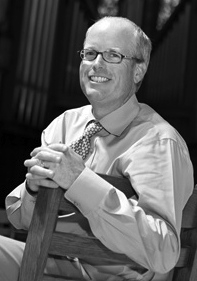| “Traveling through hyperspace ain’t like dusting crops, boy!” Han Solo, Star Wars: Episode IV — A New Hope |
When the Millennium Falcon flies through space at warp speed, the stars blur and the universe streaks by. That is medical training. You powered through college to get into medical school. You spent hours in the library and on the wards while your friends enjoyed their first real jobs. You matched in a residency. Time blurred while you cranked out the long hours.
Then, suddenly, it is over. You finished your training. You likely put off marriage, children, the first house, all of that to learn the art of medicine. Residency is hard, but it is also very structured and even sheltered from those big life decisions. There is the deferred happiness: work hard now so that real life can begin later. You come out of hyperspace. The blur of time ends. Everything slows down again. The world comes back into focus. There is a disorienting feeling: “Where are we? What’s next?”
As the director of a med-peds residency program, I’ve had hundreds of conversations over the years with residents struggling with that unsettling feeling about life after residency. Those next steps can be daunting, and there is little concrete advice out there. Here are a few suggestions to help you come out of the dizzy blur as you navigate to that next star.
1. Think Like a Professional (Get a Lawyer)
Have a lawyer look over your first contract. You think your employer is looking out for your best interests, but do you know what a “non-compete clause” is? How about claims-made vs. occurrence malpractice insurance? One will get you stuck paying a tail, the other will not. Do you know what a “tail” is? A lawyer can sort this all out and advocate on your behalf.
You might think this will put off your future employer. And yet, if done professionally, the opposite will be true. It will demonstrate that you are a conscientious professional. You take yourself and your job seriously.
As the profession moves away from solo practitioners, you are likely joining a corporate enterprise — a hospital system, a large network. Having a lawyer review your contract is standard fare in the corporate world. Dr. Julie Freischlag, Dean of the School of Medicine at University of California, Davis, offers some advice about this.
There are other legal issues to think about: a will and end-of-life directives. We ask about the code status of our patients, but so many of us have not even discussed our wishes with our families, much less codified them in legal documents.
2. Be the Adult in the Room (Get Insurance)
You are young and healthy. Your career is about to begin. Being disabled is the last thing on your mind. And yet, just over 1 in 4 workers become disabled for some period of time before reaching age 67. That could happen to you. If you have dependents, then you must get insurance. There is too much uncertainty in life, and you do not want your loved ones struggling financially in your absence.
Researching these policies can be tricky. The easiest strategy: go with the company that already insures your car or your family home. If they treated you right when you had that fender bender, they are likely to do the same with other policies. Also, bundling policies together can give lower rates overall. The other easy option: employers often offer disability and life insurance as a benefit at reasonable rates.
3. Think Ahead (Get Your Finances in Order)
After years of medical training (and paying for it), you can think more intentionally about your (hopefully positive) cash flow. You learned how to manage DKA and shock: personal finances is not as hard.
It comes down to this: debt vs. savings. This means investing for your retirement. Yes, you have a ton of loans. But if you can defer your income into a 401k or other retirement fund, you should max it out. It is like giving yourself a raise, since you won’t be paying taxes on any income you defer.
Set it up as an automatic deduction. You won’t even miss the money. Then, pay off that credit card debt. That 29% interest will trump anything you would make in the stock market.
A professional advisor can help here, but find one that will charge by the hour rather than one that has hidden fees wrapped into investment products they are proffering. A helpful link to find a physician-friendly financial advisor can be found here.
4. Find Your Vocation (Get a Mentor)
In medicine, we are steeped in a culture where the next step is well-defined. There is the next rotation, the next board exam, the next application. The path is clear and the next horizon is clearly visible from where we stand. Everything changes after training. The horizon is not always easily visible. Because of this, we can lose our bearings.
The “nuts and bolts” of life — insurance, finances, etc. — are important. Yet, as life comes into focus after the hyperspace of residency, deeper questions emerge. “What matters in my career? In my life?”
In his recent book, The Road to Character, David Brooks, the New York Times columnist, describes the tension between “résumé virtues” and “eulogy virtues.” Résumé virtues are those skills and positions that we would list on our résumé. Eulogy virtues are deeper. What would people say at your eulogy? Were you kind? Genuine? Honest? In medical training, perhaps we emphasize the résumé virtues over the eulogy virtues.
What does that vocation look like? How do we go about developing our eulogy virtues? In residency, we belong to a guild and learn medicine from masters. I believe the same should be true in crafting a vocation. Whom do you admire the most? What did that person do that inspired you? If you have a lawyer and a financial advisor for the easy stuff, it only makes sense to have a mentor (or several) for the hard stuff.
Who is your Obi-Wan Kenobi?
I think life-after-residency should look like life-in-residency in this respect: our learning is shaped by those around us, and so too is our character. After residency, we should reach out and connect with those who have much to teach us. Our learning, our growing, continues after residency.
I would be very explicit about this. Identify your Obi-Wan Kenobi and say, “I just finished residency. I think you have been successful. I would welcome hearing your story. Could we meet sometime?” Connecting with others has been a joyful regular practice throughout my career and has kept me fresh in medicine. I also believe this practice increases job satisfaction — mutual support from fellow Jedi knights.
About one’s role in the world, David Brooks writes, “No good life is possible unless it is organized around a vocation. If you try to use your work to serve yourself, you’ll find your ambitions and expectations will forever run ahead and you’ll never be satisfied. If you try to serve the community, you’ll always wonder if people appreciate you enough. But if you serve work that is intrinsically compelling and focus just on being excellent at that, you will wind up serving yourself and the community obliquely. A vocation is not found by looking within and finding your passion. It is found by looking without and asking what life is asking of us.”
What can be more “intrinsically compelling” than caring for the sick? What could be more virtuous than the vocation of medicine?
 Benjamin R. Doolittle, MD, is an expert in burnout and wellness in residents and physicians. He is an associate professor and program director of internal medicine and pediatrics at the Yale University School of Medicine and the medical director of the Yale Medicine-Pediatrics Practice.
Benjamin R. Doolittle, MD, is an expert in burnout and wellness in residents and physicians. He is an associate professor and program director of internal medicine and pediatrics at the Yale University School of Medicine and the medical director of the Yale Medicine-Pediatrics Practice.



Great advice , will definitely share with my residents
I very much agree with the last part about being thoughtful of those who you surround yourself with. Really great tips here.
Great tips. I found there is a HUGE gap in my knowledge when it came to starting my own practice. We know how to treat patients, but running a business is a whole other story. Found this to be helpful.